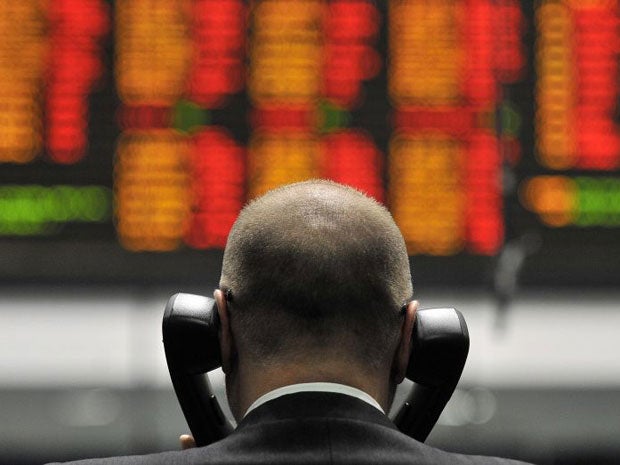Market Report: Buckle up - investors are in line for the bumpiest ride since the Great Depression
Fears that another global banking crisis is on the way have hammered bank stocks this year

Buckle up: investors are in line for the bumpiest stock-market ride since the Great Depression of the 1930s. The shaky start to 2016 has been underlined by the fact that consumer goods companies now have more power on the FTSE 100 index than financial services groups.
Companies including Unilever and Reckitt Benckiser now make up more than 20 per cent of the blue-chip index by their market values. For the first time since the creation of the Industry Classification Breakdown 10 years ago, they have overtaken the banks and insurers.
Fears that another global banking crisis is on the way, prompted in part by concerns about the strength of Deutsche Bank’s balance sheet, have hammered bank stocks this year and played into the hands of consumer goods firms, which tend to be defensive stocks that fare well in unsteady times.
But Thursday was a day to savour for banks. They made the biggest contribution on another volatile day for the FTSE 100, which surged by 145.63 points, or 2.5 per cent, to 6,012.81.
Lloyds Banking Group surprised shareholders with a £2bn payout, despite missing its profits target, and its shares duly rose by 8.44p to 70.64p.
More confidence in the Lloyds’ ability to dish out dividends despite record low interest rates and sluggish economic growth lifted its rival lenders. Royal Bank of Scotland was up 11.9p at 244p and Barclays rose by 8.1p to 164.85p.
HSBC was also among the winners, climbing by 15p to 448.8p even after Berenberg slashed its target price to 600p following a cut in its earnings forecasts.
Shares in Next rose 40p to 6,740p but the fashion retailer underperformed the market as Berenberg cut its rating to “hold”.
The FTSE 250-listed transport operator National Express was up 26.3p to 321.6p after it reported that normalised operating profits had risen by 15.5 per cent to £193.5m, beating analysts’ forecasts.
On the Aim exchange, shares in the cross-border payments firm Earthport fell by 7.13p, or 29 per cent, to 17.88p after it warned that it could lose up to £5m after a corporate customer of its wholly owned subsidiary, Baydonhill, went into administration.
Join our commenting forum
Join thought-provoking conversations, follow other Independent readers and see their replies
Comments
Bookmark popover
Removed from bookmarks